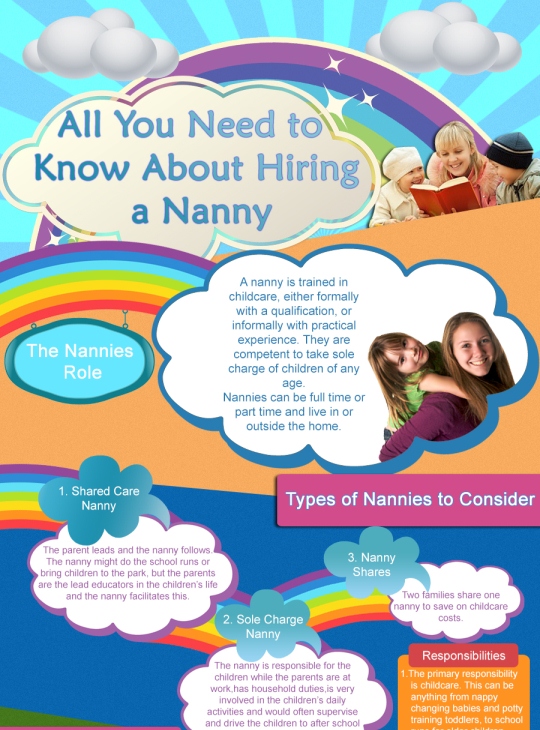Hiring a nanny is a process that can be very rewarding and can help your family in so many ways. There are a number of factors to consider when choosing a nanny and the more informed you are the better.
When choosing a nanny, you need to decide what type of nanny you actually want. This can range from a shared care nanny, a sole charge nanny or nanny shares with another family.
One of the most important aspects of hiring a nanny is the vetting process. While technically nannies don’t need a formal qualification, there are guidelines to be aware of which you should familiarise yourself with. A nanny should have relevant experience and should be able to provide references.
Writing a checklist can be helpful when interviewing candidates. Items to include might be a disclosure and barring service check, qualifications, first aid certificate queries and questions on rights to live and work in the UK for example. It is also advisable to hire a nanny over 18 years of age.
As an employer, you have legal responsibilities and you need to make yourself aware of what these are. The best place to start is to register with the HM Revenue and Customs, set up PAYE for your Nanny, keeping tax records, organise payslips and a contract and pay various insurances, along with filing an annual tax return.
Providing your new hire with a contract is paramount to ensuring vital transparency from the beginning so your new employee knows what is expected of her before she starts work. Items to include in the contract would be the agreed salary, working hours, holiday entitlements and any additional ad hoc duties such as light housework.
It is really vital to remember that a nanny is a professional person hired to mind your children and is a paid employee. It is very different to hiring an Au Pair who is a young person on a cultural exchange with minimal experience minding children.
(Click on the image for full view)
Source: rainbowaupairs


